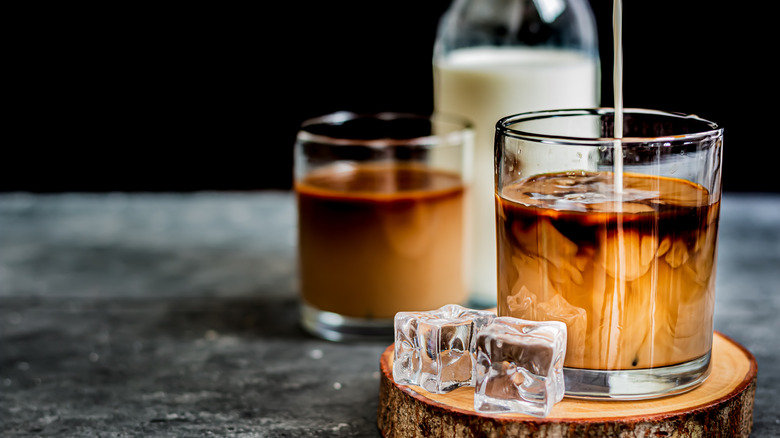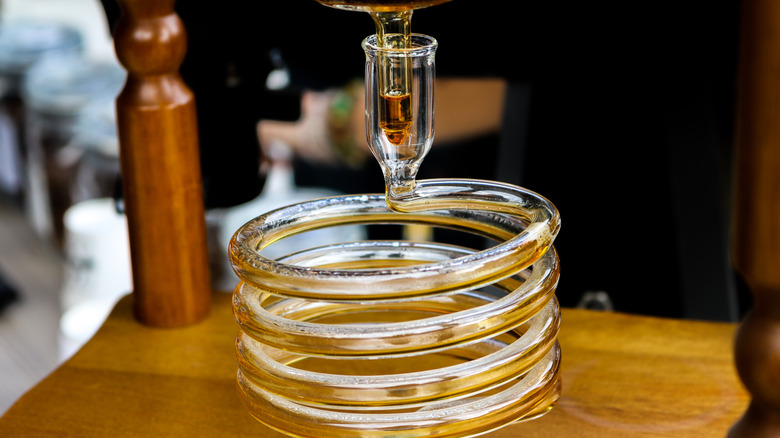Here's What Happens If You Heat Up Cold Brew Coffee
Those who love cold brew coffee are generally in it for the long run. It's an acquired taste, one with little room for variation. Add some milk, sweetener, or flavor to taste, and then you're done. But if you happen to crave a warm drink on a chilly day, can you just heat up a cold-brewed round of coffee? Well, it's not that easy, and there's going to be some sacrifice involved.
Cold brew coffee, as the name implies, comes from a different brew-family of thought. Instead of extracting the essence of coffee beans using hot water, you soak the beans in cold or room-temp water for at least 12 and up to 24 hours, explains Kitchen Appliance HG. It's important to realize that coffee made using a cold brewing method is not the same as an "iced coffee." A typical iced-coffee drink uses cooled-down, hot-brewed coffee served over ice, while a cold brew coffee originates from cool water and needs no heat for brewing.
Cold brew coffee, favored by many java junkies for its smooth, relatively mild flavor, actually packs a concentrated caffeine punch. After the beans and water co-mingle for all those hours, the caffeine content in a single cup of cold-brew can harbor from 10 to 30 more milligrams of caffeine than its hot-brew counterpart. That fact, along with other considerations, is why it helps to know what happens when you heat up cold brew coffee.
The method matters
It's entirely possible to heat cold brewed coffee as long as you know the effects and how to mitigate them. Identity Coffees cautions that you could experience a loss in flavor and quality while gaining bitterness. The smooth quality so prominent in cold-brewed beans can recede. A chemical reaction is involved in that transformation, according to Kitchen Appliance HQ. Naturally occurring chlorogenic acid and quinic acid are altered with heat, resulting in a bitter, acidic taste in your cup.
Also, if you adore the concentrated flavor and intense caffeine kick from cold brewing, you may lose that, depending on the heating method. To preserve the most favorable qualities of cold brewing, most coffee professionals recommend adding boiling water or heated creamer directly to a cup of cold brewed coffee. However, it will result in a dilution of the original concentration. To prevent that, opt for gentle, direct boiling of the full-strength cold coffee on a stovetop, taking care not to scorch the liquid.
Be aware that slow-heating of cold brew coffee can lead to quicker oxidation and an altered flavor, warns Kitchen Appliance HQ. Take time to experiment with various heating methods, and find a balance between the cold-brew characteristics you love and the lure of a steaming cup of rich, hot morning coffee.

